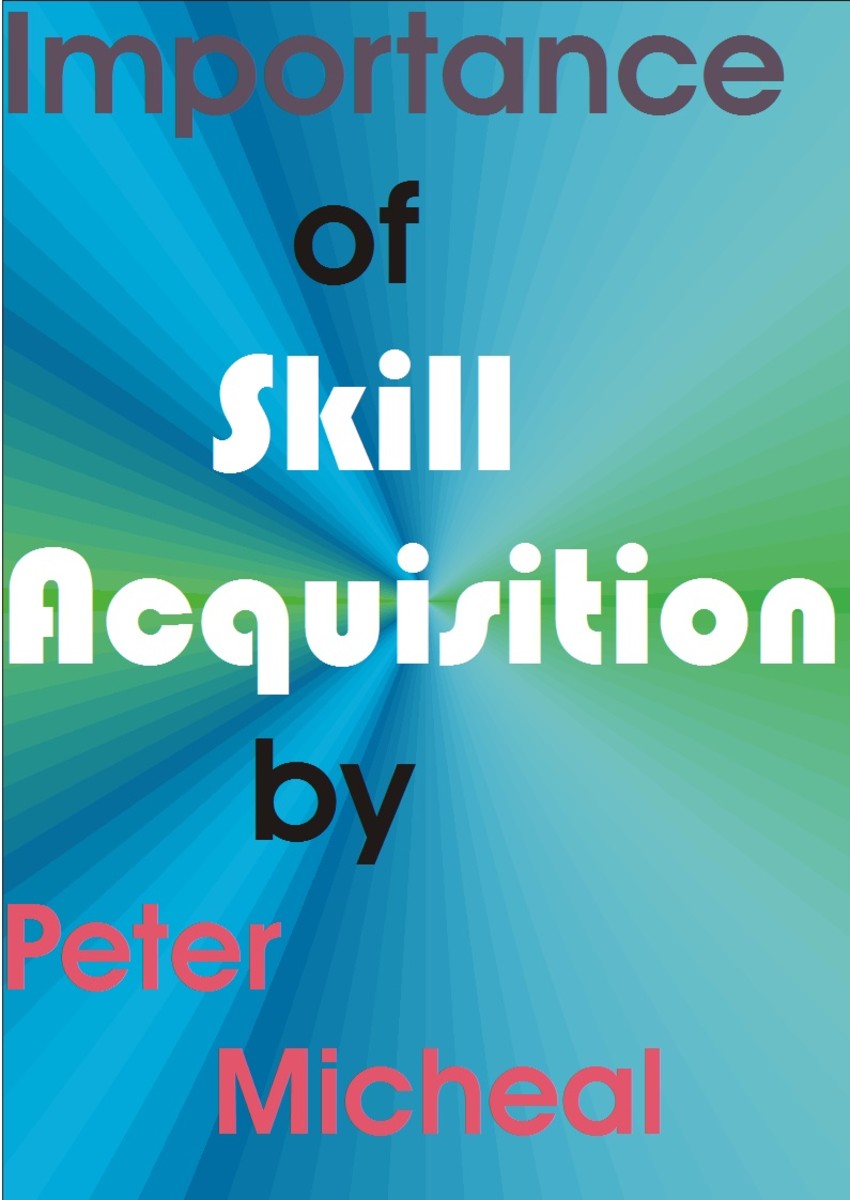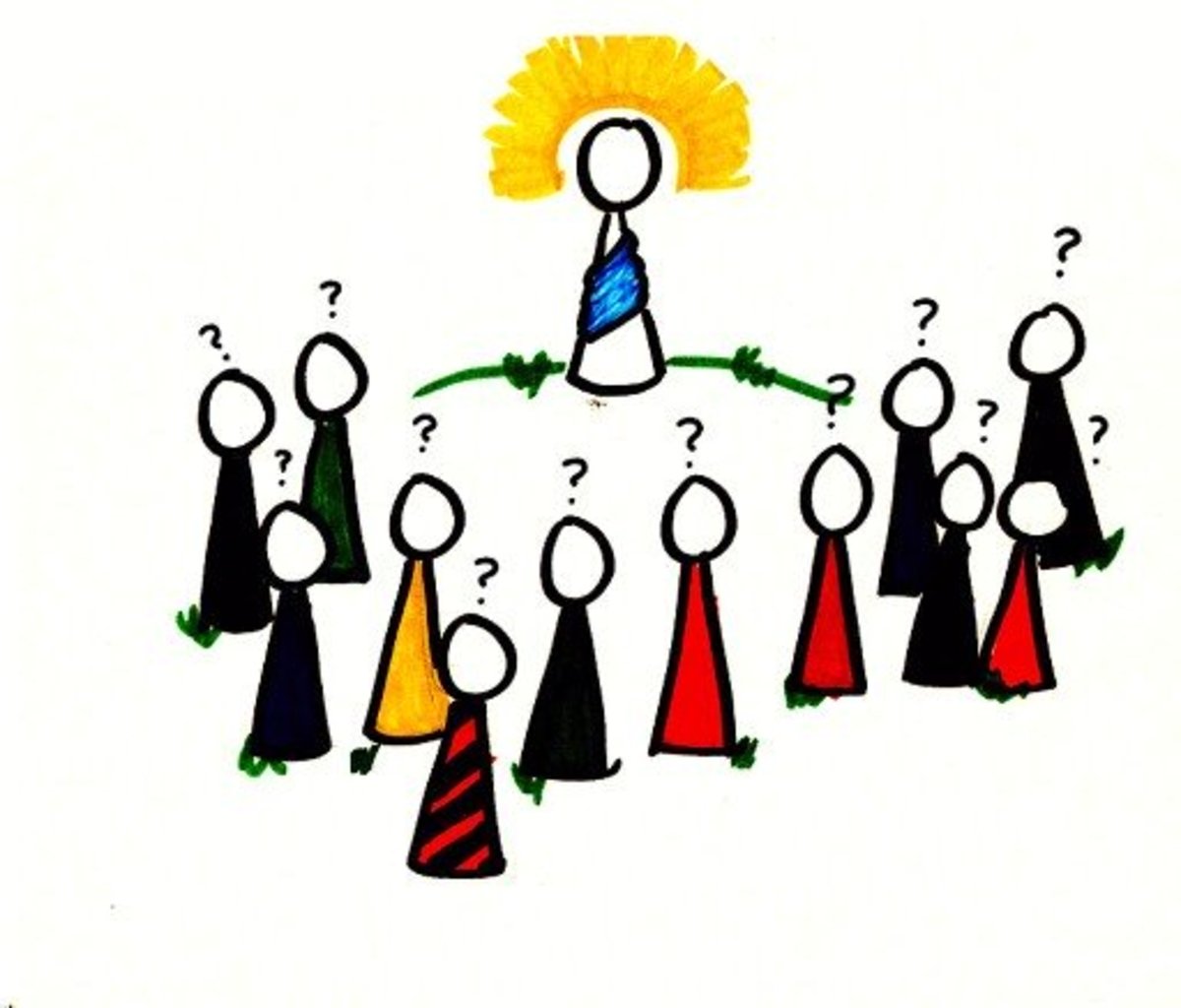The Meaning and Importance of Education
There are different opinions on what education is. One’s definition of education differs from another depending with how an individual views education. But, its undisputed knowledge and skills are two terms associated with education. Education involves gaining the necessary knowledge and skills. Whichever type of education a person is talking about, each of them involves imparting the student with knowledge and skills.
Education is not limited to what a person is taught in class. The information a person gains and the necessary skills he acquires in whichever setting - class attendance, online/distance learning, reading books, watching documentaries, learning through experience and so on are ideal in ensuring effective growth of an individual in four aspects of development: cognitively, physically, psychologically and socially.

Thus, we can deduce education is what a person learns and what he does with what he has learned. He has gained a particular skill, how is he making use of that skill? He has learned something in the class, or he has learned something through experience; how does he affect what he has learned? What you do with what you've learned is what education is all about. This is the reason formal educational institutions are blamed for producing half-baked graduates. In these situations and sometimes non-formal institutions, students are taught how to pass an examination. Rarely are students taught the required skills on how to solve problems, how to tackle various issues or how to think critically and creatively.
According to ACS, an institution offering both online and distance learning courses, studying courses or gaining a qualification doesn't always equate with effective education. They state, “Education brings about an inherent and permanent change in a person's thinking and capacity to do things.” They further state, “Real education embeds things into one's brain, and anyone who understands learning will understand that this comes from repeated exposure and use of information and skills.”
Thereby, can we assert there are any benefits associated with education? Does education serve any importance in an individual’s life? The answer is a resounding, Yes. Below are the benefits or importance of education both to an individual, to a nation and the world at large.

1. Enables A Person To Think Critically
One of the major functions of education is to enable an individual to reason fittingly about an issue or situation. A major factor differentiating humans and animals is the reasoning capacity. The many inventions we have witnessed in our world today stemmed from man engaging his logical faculties. The inventors engaged their brain in coming up with a solution to tackle a specific problem or issue.
For instance, if you don't agree with your friend on a certain topic, how do you present your ideas? Do you offer logical arguments or do you aimlessly spit words which aren't backed with facts? Do you get mad or do you remain calm as you try to justify your point-of-view?
2. Enables an Individual to Think Creatively
Creativity involves imagination. It goes hand-in-hand with critical thinking. If you are faced with a problem, how do you address it? The person who invented an airplane solved the problem of traveling for long distances, from one continent to another over a large body of water. He imagined in his mind an image of an object flying high above. Without creativity, sometimes critical thinking is of no use.
Creativity is derived from the word create. You create in your mind an image, a solution, to solve a particular problem. If I have one orange and there are three of us in the room; will I tell one of my friends that I'm sorry it's not possible to divide the orange into three parts but two parts? I have to reason by creating an image in my mind on how I can divide the orange in three equal parts.
5 Main Reasons Why Education is So Important
3. Prerequisite for Employment
Nowadays, it's difficult to find a white collar job if you have not gained a certain level of education. Even casual jobs in some parts of the world require a person to have a certain amount of education.
It doesn't mean because an individual doesn't have the required education or qualification, he is disadvantaged. Nonetheless, the world is leaning towards education; thus in several years to come it will be the leading determining factor in gaining an employment. This is a matter of fact.
Employers want to be certain you have gained the essential knowledge and skills in a particular profession. If you want to become a software developer; how will an employer know you're capable of performing such a task?
4. Upholds Moral Values
Education isn’t limited to a teacher teaching the common subjects e.g. Mathematics, Geography and English. Instilling moral values in a person's mind is another benefit of education.
There is no use of having a lot of knowledge and the vital skills but lacking in behavior. Such a person is still lacking in education. A leader is lacking in knowledge and leadership skills if the words that come out of his mouth are always full of dirt.
This is the major problem that faces formal institutions. Students are not taught proper behavior, how to interact with other people, the moral values that they need to observe. Without a good attitude, a sound mind, integrity, and other moral values a person should be in possession of; that person is not quite well educated even if he holds the highest office in a reputable organization.

5. Appreciation of Other Cultures
It is through education we appreciate other people's cultures or ways of life. Even if we don't agree with some of their cultural practices, we gain a better understanding why they believe what they believe or why they behave in a certain way.
Learning together with people of different geographical backgrounds, or learning about others through any type of education provides us with better insight of other cultures - a better understanding of other cultures - thus making it easier and safer to interact with them and how to approach certain issues relating to their culture or opposing theirs.
6. Produces a healthy nation
There are hundreds of studies that have been done on the subject of health and nutrition including sanitation. Thus, these studies have formed the basis of ministries of education in nations to adopt curriculum that touches upon this subject.
People learn about balance diet, how to stay healthy, proper hygiene practices and how to keep our environment clean. Thereby, we can clearly state an educated nation is an informed nation. If people don't know how to stay healthy and how to observe better health practices, then they will always be faced with a number of health problems.
People in developed nations live a longer life because they know how to stay healthy by observing healthy practices which include exercising. A person cannot know something is bad unless he is told it is bad. An individual won't know drinking five cups of coffee a day is harmful to his health till he learns to minimize the number of cups he drinks daily.

7. Enables a Country to Become Technologically Advanced
We live in a world where technology is advancing every minute. These technological advancements have made life easier by improving our lives in different aspects such as aiding in performing a task.
It is now easier than ever to communicate with people who are thousands of kilometers away. We can appreciate how far technology can aid us in performing different tasks thus completing such tasks in fast track time.
A nation which is technologically backward, or the majority of the citizens are ignorant in matters of technology, will develop slowly and it will inhibit the nation developing at the same rate with other nations.
Technology is meant to ease various tasks performed by humans, not replace them. However, it is evident in some cases it has replaced humans in some jobs. Nonetheless, technology has improved our lives in terms of easing communication, of traveling from one place to another and storing food for a considerable length of time, to name a few.
8. It Fosters Unity and Equality
It is through education we learn the essence of unity and why it’s important including the fact males and females are equal even if they are physically different. Learning together in class or through other modes of learning, we appreciate each other – both our strengths and weaknesses. We learn we shouldn’t fight against each other but find a common ground as intelligent beings as opposed to wild animals.








